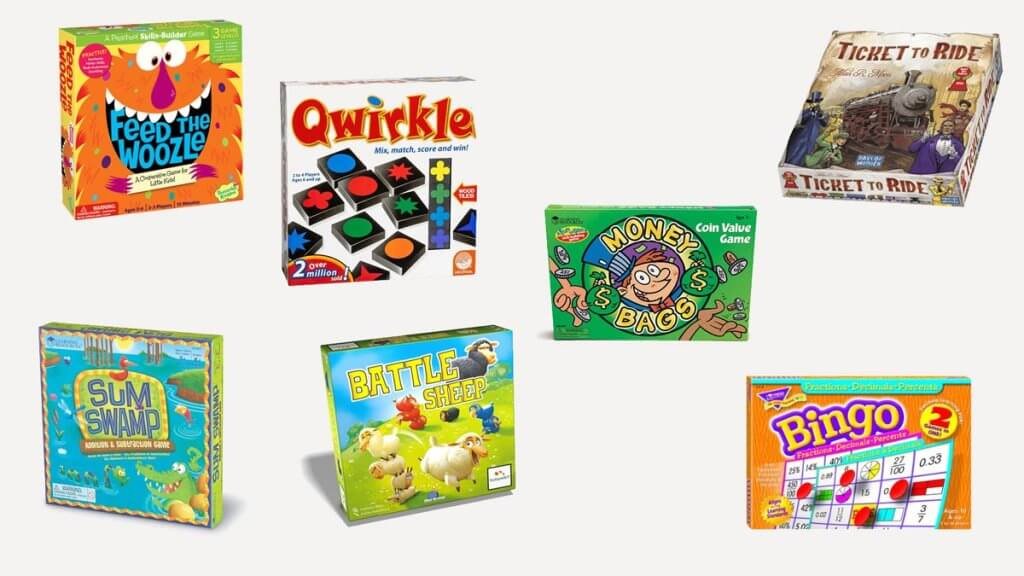With families staying home more and parents worried about screen time, board games are having a moment. And while some kids and parents write them off as a waste of time, they have significant benefits that help kids learn.
Table of Contents
Using board games can also help children develop resilience, an important skill in school and social settings. They learn to cope with setbacks and try again, a valuable life lesson.
They are Fun
Children can’t deny that they love playing games. Especially those that have educational value. The games they play in their free time help them learn and develop many skills needed in everyday life, such as patience, verbal communication and interaction. They also learn to follow instructions and work together in a group setting. Even children with difficulty communicating in normal situations often open up and become incredibly chatty when playing board games. In addition, playing board games helps them to improve their problem-solving skills. This is a crucial skill necessary for success in school and beyond.

Many people don’t realize that playing board games is an excellent way to teach various skills. These skills include logical reasoning and strategy, planning and thinking through multiple options. These important skills can be taught through educational board games such as Chess, which helps players think logically and plan strategically. Other games, such as Balderdash, which requires players to create definitions for obscure English words, can help students to learn vocabulary and improve grammatical accuracy. Educators can even use games that teach specific curriculum goals and accomplishments. This is known as gamification. Gamification provides learning in a fun, interactive format that engages students and makes them eager to succeed.
They Are Interactive
Board games are a great way to practice skills without putting too much pressure on kids. They can practice their motor skills while playing a game like Twister or work on their color recognition and counting by hopping, skipping, jumping and rolling while playing a game such as Math Facts Curriculum Mastery Game.
For older children, educational board games can help develop reading and writing skills by using the cards drawn from a draw pile to practice phonics and word families. It is a great way to encourage reading and spelling while having fun with friends!
One of the greatest benefits of playing educational board games is that they teach kids to think logically. Many times when a child is playing a game, they will be asked why they made their choice which will give them practice thinking about how they made their choices. This is a skill that will be valuable in life!
Playing analog educational board games is also important because it allows players to interact more socially. This can greatly benefit some kids, especially those with anxiety and social issues. It can also be a good way to build self-regulation skills and increase attention span by forcing children to learn how to wait their turn.
They Are a Great Way to Hold Attention
Some parents might write off board games as old-fashioned or time-consuming, but when they are played well, they can help with some of the most important cognitive skills. They can improve concentration, the ability to focus without distraction, and the ability to wait for your turn and follow the rules. Even children who aren’t particularly good at academics can benefit from a game of Connect 4 or Sight Words Bingo.
Educational board games are also a great way to teach kids that learning isn’t just something you do in school. By making it fun and interactive, they can help kids see how the things they learn in school are used in real life. This helps them understand that they can succeed in school, regardless of their abilities.
Finally, educational board games can help with critical thinking and problem-solving. Many require players to think strategically and logically to win, which is excellent practice for these skills. They can also be a great habit to help kids work on their memory skills by forcing them to remember multiple facts, details and information throughout the game.
So next time you’re looking for a way to keep your kids’ minds and bodies engaged, break out the Monopoly or Candyland! You might be surprised at how much they learn without even realizing it.
They Are a Great Way to Learn
With kids staying home more and parents worried about screen time, educational board games are having a moment. From classics like Candyland and Monopoly to new ones that use task cards to help with learning, students can learn in various ways without realizing it.
These games teach important skills such as taking turns, following rules, working through conflict, and learning to win and lose gracefully. They also develop social-emotional skills, such as empathy, perseverance, and fairness. They help build cognitive skills like pattern recognition, problem-solving, and strategic thinking.
In addition, these games can be a great way to develop vocabulary and flex language skills. For example, in Balderdash, players are given a little-used or obscure English word and then asked to create a definition for it. The other players then vote on which one they think is correct. This game is fantastic for building reading, writing, and spelling fluency.
Other great games that boost literacy include Scattergories, which requires players to think of words or items that fit the categories on their game cards. This is a good game for developing creative problem-solving, feeling under pressure, and the ability to work within constraints (for example, the categories). Finally, Quixx is a fantastic game for helping with arithmetic and addition skills and can be played in teams or as individuals.


